With a sprint of Olympic standards, the management of illegal immigrants climbed to the top of positive indicators of the government, overcoming all obstacles within a year: lack of confidence, distrust and a frustration of expectations.
The key to launch this policy field was the radical revision of the national policy, with the competent ministry rolling up its sleeves, literally catching the thread from the beginning.
The government’s immigration file is evolving, disproving even the most pessimistic, namely the drastic settlement of one of the most complex, political and social issues of the 21st century.
On the one hand, the transnational implications of the problem, and on the other hand, the images that Greek society has experienced in the recent past, with immigrants in central parts of Athens without infrastructure and plan, on the other.
It eroded any public belief in a strong political will to the substantive treatment of the issue, a collective impression that the Mitsotakis government inherited from its very first days.
The polls
Indicative of the lack of perspective towards the immigration issue was the fact that the government performances brought a positive sign (even in difficult sectors, such as the economy, taxation and security)..
In the best cases, the positive opinions about the management of immigrants by the government reached 10%, with citizens discounting that the current government would follow the footsteps of SYRIZA, bringing about subtle changes in its management, a view that was expressed en masse in the answers of the majority of respondents in most polls.
Reversing the forecast, however, the positive opinions about Immigration now reach 35%, with the record high being recorded in the last Pulse poll for SKAI, where 40% of the respondents stated that New Democracy government can better address the issue, compared to 21% who answered “a SYRIZA government.”
The turning point was in 2020, when the change of perspective began to unfold across the spectrum, with the government promoting simultaneous drastic changes in many different directions.
The social pressure, after all, from the image of chaos radiated from immigration housing structures, but also the ever-increasing flows, had narrowed the time margins for intervention by the government.
A few days after New Democracy took power and in the islands – mainly in the Northeast Aegean – the situation deteriorated, with the summer of 2019 signaling an alarm in Athens for a complete redesign of the national immigration policy.
Signs of reversal of the negative image reflected by the country due to immigration began to be seen from mid-January 2020, when it was decided to re-establish the Ministry of Immigration and Asylum, as the center of gravity and coordination for actions to address the problem.
However, government intervention became more pronounced when the first, reduced flows of illegal immigrants began to be recorded.
For the stakeholders, achieving the strategic goal of regaining control over immigration would have seemed utopian, if not accompanied by a significant reduction in flows, which would also signal a complete change of government course.
In this area, efforts have begun to bear fruit already within 2020, so that the reduction of flows finally reached 80%, ie arrivals from about 72,000 in 2019, decreased to 15,000 in 2020.
The speed of de-escalation of the volume of flows typically captures the last nine months of 2020, where the reduction of arrivals on the islands reached 94%.
After all, this is the first time since 2017 that the goal of drastically reducing migration flows does not remain on paper, although both the international and the European situation are not at all favorable.
At the same time that immigration flows in Greece are impressively decreasing, the Italian Ministry of Interior estimates that 34,134 immigrants arrived in the country in 2020, an increase of 197% compared to 2019 arrivals, which reached 11,471.
However, Spain was no exception to this European trend, as the country’s Interior Ministry spoke of 41,861 immigrant arrivals throughout 2020, an increase of 29% from 2019, when 32,449 were recorded.
Therefore, the reverse trend observed in Greece in relation to neighboring countries and gateways to Europe lies in the change of political direction from Athens, which is summed up, in large part, in the doctrine of “determination to guard our borders, with absolute respect for International law and European values.”
In any case, however, the “electroshock” for the rapid decision-making in the management of Immigration in 2020 was at Moria, in which the manifestation of a humanitarian crisis seemed more than absolute certainty.
With the threat of an uncontrollable catastrophe of unknown consequences hanging over the government, Athens’ response was shaped by the construction within a few days of temporary structure elsewhere on the island, as a last resort to house thousands of people without shelter.
The need for daily improvement of the hospitality infrastructure, but also the reactions of the local community have accelerated the creation of a new controlled structure in Lesvos, supported by the European Commission.
Sensitivity moves
At the same time, Greece did not lack actions for unaccompanied minors, which attracted the interest of the European community from the first moment.
The beginning of a new strategy for managing this vulnerable population came with the abolition of a shameful provision, which has allowed unaccompanied minors to be detained in police custody for the last 21 years.
Curing this anachronism, all unaccompanied minors were transferred with great effort from the islands to safe accommodation structures, achieving a feat, since today, after many years, there are no “forgotten” unaccompanied minors.
The relevant measures taken by the government to protect migrants from COVID-19 also contributed to the normalization of conditions in the accommodation structures.
Codenamed “Agnodiki”, a special operational plan for the control of COVID-19 in the hosting structures was prepared and is being implemented, so that the number of cases remains constant at 1% of the population, with only one loss of human life.
Despite the special measures to protect migrants from COVID-19, the outbreak of the pandemic drastically changed the pace of action regarding immigration, especially in terms of adhering to the timetable of returns and relocations.
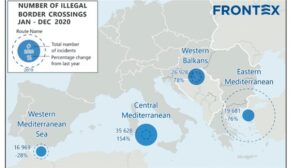 At this stage, however, Greece is restarting the repatriation program for foreigners who are not entitled to international protection, having submitted a request to the European Commission and FRONTEX for the immediate return of 1,450 people.
At this stage, however, Greece is restarting the repatriation program for foreigners who are not entitled to international protection, having submitted a request to the European Commission and FRONTEX for the immediate return of 1,450 people.
In particular, the Greek request said that 955 illegal immigrants who entered the country are in Lesvos, 180 in Chios, 128 in Samos and 187 in Kos, who must return to Turkey.
In fact, given that everyone’s requests to stay in the country have finally been rejected, 1,450 foreigners are deemed to be returned to Turkey.
Returns will be launched without ignoring the existing institutional and legal framework, or health protocols.
With these conditions, the returns are now equivalent to the expression of a fair policy on the part of Greece, inherent in European values and the rules of International Law.
In the first two months of 2020, returns to Turkey had reached a total of 139, keeping the process alive.
Athens’ revised Immigration Strategy also included the use of other return mechanisms in order to achieve the decongestion of islands as possible.
Using these mechanisms, a total of 11,297 people left Greece in 2020, culminating in the effort of the last seven months.
The target
Based on these, for the first time the plate tilted in favor towards Greece, with the balance of departures-arrivals bringing a positive sign.
Already during 2020, 11,297 illegal immigrants have left the country and only 14,848 have arrived.
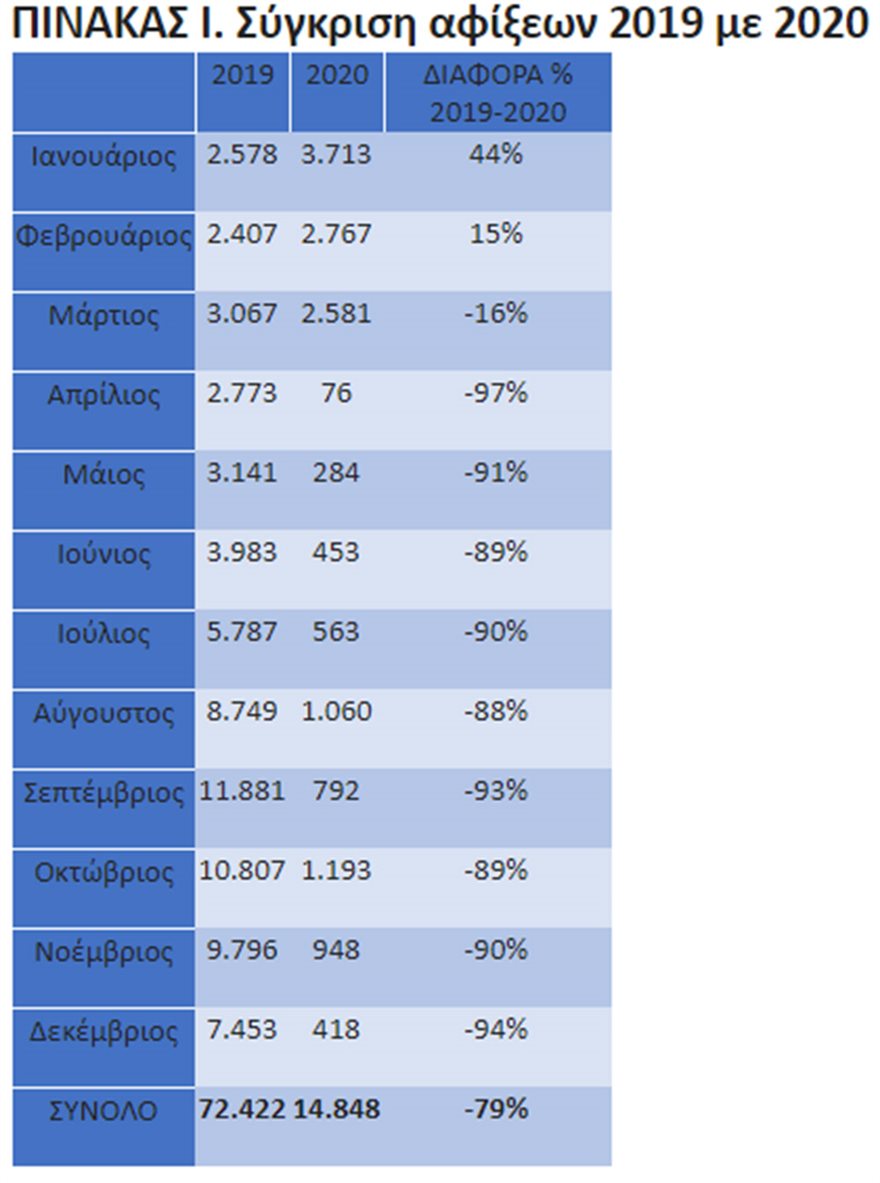
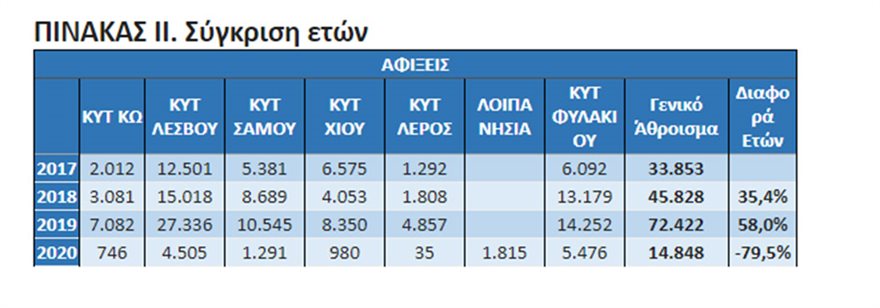
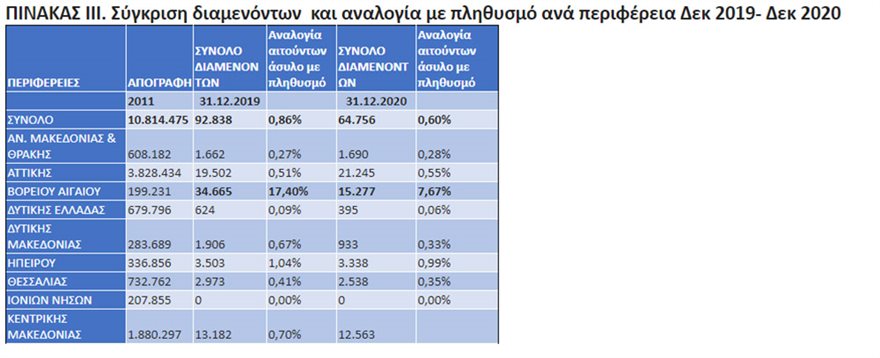
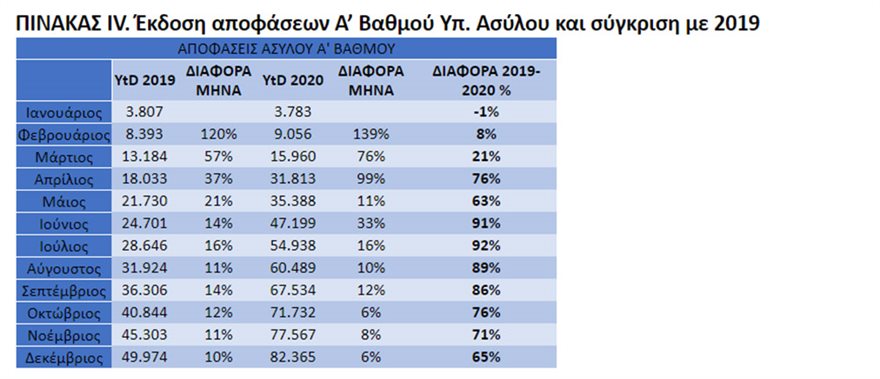


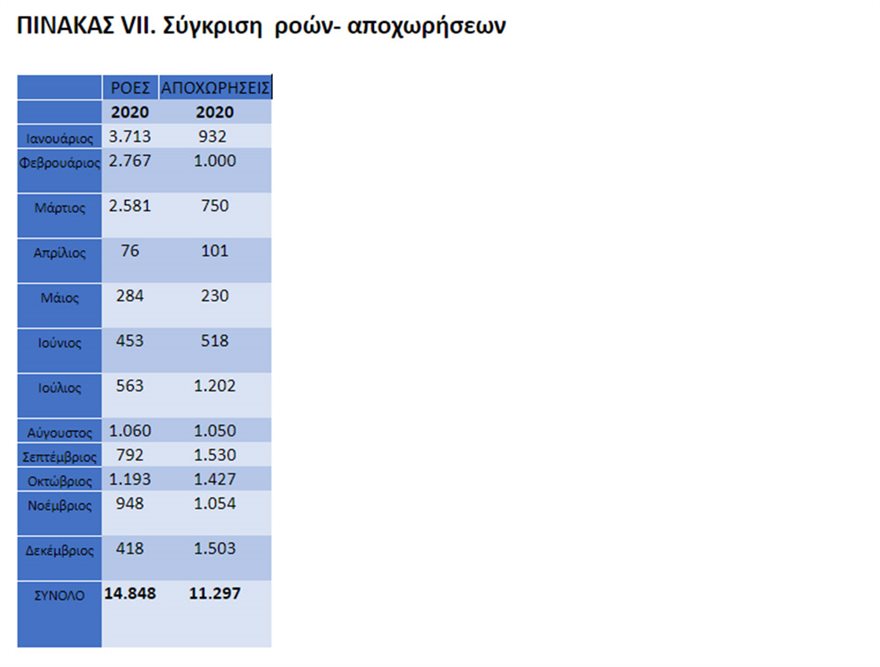
Georgia Sadana is a correspondent for Proto Thema.


